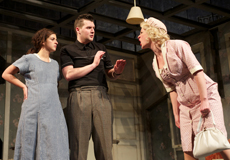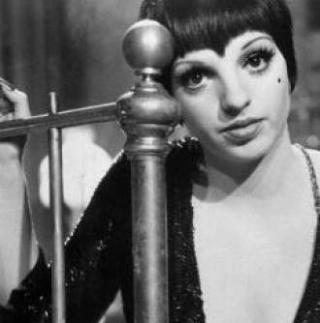This article first appeared on The Culture Trip website:
http://theculturetrip.com/europe/united-kingdom/scotland/articles/the-edinburgh-literary-pub-tour/
Pints and Poets
Old Edinburgh was a city of two halves: the grimy, poverty-stricken Old Town, full of overcrowded filthy tenements and taverns bustling with workers, criminals and prostitutes; and the gentile New Town, home to intellectuals and professionals with plenty of cash, clean hankies and impeccable manners. Between these two strikingly different halves, the city’s most famous literary figures – from Robert Burns and Walter Scott to Robert Louis Stevenson – came out to play.
The Edinburgh Literary Pub Tour seizes on this intriguing duality by presenting two very different fictional characters as guides: ‘Clart’, the literary bohemian who revels in the murkier side of Edinburgh’s literary past; and ‘McBrain’, the more refined intellectual who would rather dwell on the loftier side of things. Through their musings, we get to hear of the dark underbelly of Old Edinburgh (or ‘Auld Reekie’ as it was known) as well as the more polite society of fancy drawing rooms. This duel of wits is the tour’s high-point.
The fact that these roles are performed by professional actors rather than academics or guides reciting from books will come as a welcome tonic to many a weary tour-goer. The actors, though incredibly knowledgeable, never become bogged down in too many dry details, selecting only the juiciest aspects of the city’s literary past on which to elaborate.
Leading us through the wynds and courtyards of Edinburgh’s Old and New Town, Clart and McBrain guide us from the Grassmarket’s warm and sumptuous Beehive Inn to the Royal Mile’s cosy and atmospheric Jolly Judge and lively Ensign Ewart, finishing in the rather grand Kenilworth on Rose Street. Along the way we are led through Makars’ Court, a strangely silent, moonlit pocket of the city and a particularly atmospheric part of the tour. As we stood within the peace of the court, quotations from famous Scottish writers engraved on the stones on which we stood, we listened to the chilling tale of Deacon Brodie, who himself reflects the city’s exciting duality.
Brodie was a respected locksmith and City Councillor by day and a thief by night. As Clart reflects: ‘Now, this man finds that he cannot control this other side to him and he falls even deeper into a life of crime, terrorising his own fellow citizens, invading their homes. And all the while, the other man, the man of day, progresses up the social and political ladder until he can no longer keep up the facade, his dark self is revealed and his fate is sealed.’ McBrain continues: ‘A famous Edinburgh villain who led a double life… I know what you’re leading up to Clart – Brodie was the inspiration for Robert Louis Stevenson’s Jekyll and Hyde.’
Stevenson does indeed detail the perils of the double life – and double self – in Jekyll and Hyde, as Clart muses: ‘Stevenson was exploring the hypocrisy of the individual – and as Stevenson said “man is not truly one, but truly two…” but we are not one or the other, we are both! Edinburgh is both!’ which is precisely what the tour reflects so brilliantly.
Another literary figure from Edinburgh explored throughout the tour is Walter Scott, who grew up in the filth and clutter of the Old Town tenements and, even when he was a respected writer, returned to the seedy taverns for a good day or night out. As McBrain says of Scott: ‘… Edinburgh at that time did seem to celebrate, in some quarters, the rather seamier side of life. And I do admit it had the reputation of being one of the most insanitary cities. But the stage was set for a great figure to arise from the dirt and filth of the old town to a golden age.’ What the tour does so effectively is show that you cannot separate this dirt and filth from the gold: like Stevenson, Scott, Burns and all the others, these writers’ imaginations were fired by what they experienced in the city, by the squalor every bit as much as the beauty.
Established in 1996, it’s little wonder that the tour has continued for as long as it has, encompassing as it does over 300 years of Edinburgh’s literary history, right through to The Prime of Miss Jean Brodie, Trainspotting (and even a cheeky reference to Harry Potter). It’s an impressive piece of theatre, a celebration of Edinburgh’s cultural heritage, and an important part of the city’s tourism. If you enjoy palatable chunks of literary history, stellar performances, storytelling, song, comical tales and stunning venues – with the opportunity to drink as much or as little as you care to indulge in – this is certainly the tour for you. An Auld Reekie must-see.
The Edinburgh Literary Pub Tour is available: May-Sep (Everyday); Oct & Apr (Thur-Sun); Jan-March (Fri & Sun) and Nov-Dec (Fri). Meeting point is outside The Beehive Inn, Grassmarket, at 7.15pm. Tickets are £14 (£10 concession) and are available at the meeting point on the day or online at: http://www.edinburghliterarypubtour.co.uk/the-tour/buy-tickets











